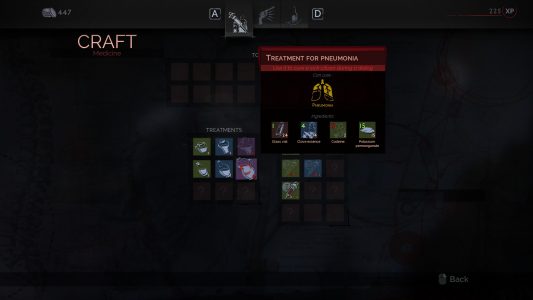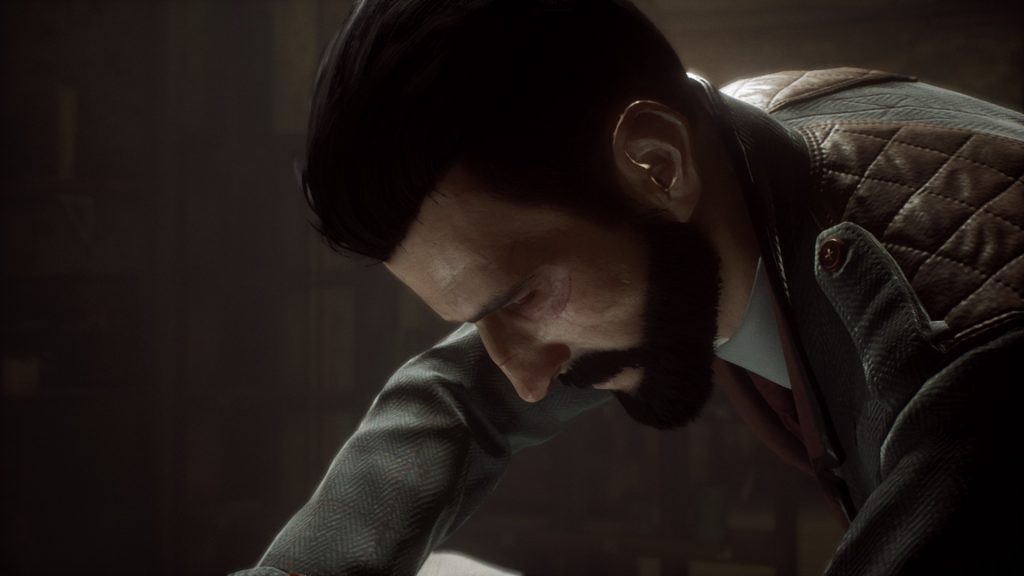Doctor Jonathan Reid has returned to London after serving in France during World War One. He returns to a nation still recovering from a war and to add insult to injury the Spanish Flu is tearing through the streets of London, but this strain is more mutated and Reid will have to discover how to fight this disease.
Trouble is Reid is also the vampire you control in Vampyr – the latest title from Life is Strange developer Dontnod Studios.
As Reid, you are given superhuman powers including the ability to turn blood into weapons, feast on your enemies mid-fight and even control hostile enemies. But Reid is not a cold monster that enjoys leeching off of innocent citizens despite his insatiable thirst for blood.
No, in fact, Reid – as a custodian of the Hippocratic oath – is actually trying to help folks. After a brief opening act where you are introduced to the mechanics of the game you are offered a job at the Pembroke Hospital in London. It’s at this point Dontnod forces the player to make a choice: will you be the leech that everybody thinks you are, or will you push your hunger back?

A matter of life or death
Vampyr is a game of choices and how you wish to play the game will change the streets of London and the people that walk the streets.
In Vampyr you earn XP in two ways. The first is from missions, side quests and killing enemies. This method will net you very few XP points, enough to get by and allow you to improve Reid’s skills, but it really is very little.
The second method of earning XP is by feeding on Citizens. The healthier a Citizen is the better the health of the area of London is. The better the health of a district the less chance you have of being culled by other monsters or Vampire hunters. A Citizen’s health also determines how much XP they will net when you feed on them, temptingly displayed in-game or the dedicated Citizen menu in the game.

At first I thought this was a simple premise but upon encountering my first human victim, I hesitated.
“If I kill this man it will drastically change this district’s health rating,” I whispered to myself.
Beyond that, I also felt pity for him.
So I missed XP in favour of saving a man, a rude man I might add.
Prepare to die for your beliefs
Throughout your time in London you will unearth clues about the Citizens, opening up new dialogue options and for those that choose that path additional XP when you feed on them.
Dontnod makes it very clear at the game’s outset that the fewer people you kill the harder the game will be. There is no difficulty slider, no option to switch to easy mode. No, just like real life, the choices you make will dictate the difficulty of the game.

This presents a problem for the player because there are enemies everywhere. From misshapen Vampires called Skral to Vampire hunters looking to kill you if you get too close to them. Reid will face unavoidable dangers as he completes missions and side quests, but with minimal XP fights becoming harder and harder.
Eventually, you will find a rhythm to how enemies attack and learn what enemies are weak to which weapons, but if you choose to spare Citizens prepare to die, a lot.
Thankfully in-game London isn’t as expansive as a Skyrim, and dying will take you back to the last checkpoint, be that a hideout or the entrance to a new area.
Winds of change
Completing missions, sparing Citizens and learning about them all have a tangible impact on the city of London.
Here everybody knows everybody’s business and folks will start asking questions if a prominent member of the community goes missing.
Even offing somebody’s family member and will result in the surviving members mentioning that they are no longer around.
Vampyr reminds me of the veins in the human body. It’s interconnected, deep and each node is vital to the system running perfectly. Mess with one of the nodes and you might be fine, but break enough of them and London will descend into chaos.
Choosing to feast on the hemoglobin of Citizens or not treating their ailments will see the exit of humans from the area and in their place monsters will roam.

Once that happens Skral patrol the streets and the humans you killed return as more terrifying monsters. This makes the game harder in the sense that there are now monsters ahead of you rather than just the monster inside Reid. You also lose access to all quests in that area, so kill with caution.
As you progress through the game you learn more about each Citizen, some are revealed to be good people while others may have deserved to die when you chose to spare them.
Of course you can go back and off people if you’d like, but then you face real monsters presenting another time to second guess yourself.
At the heart of Vampyr’s narrative is the notion that there is a monster inside all of us and that resonates with me. Most people are good but who they are behind closed doors can often be rather surprising and Dontnod absolutely nailed this perception.
There are moments where this becomes evident and I’d rather not spoil it, but some dialogue will have you cursing Reid and begging him to own up to his ways.
Worth your time and money?
Despite being a game about vampires, Vampyr is not a game like Blade or Legacy of Kain: Soul Reaver. Instead Vampyr is a game about the monsters within people and whether they deserve saving.
With that comes regret, either because you’ll now face worse evils in monsters or remorse because you let a murdering rapist walk free.
Vampyr is not without its issues, though. Every time Reid talks to a Citizen or a main character the camera is over his shoulder. There’s very little in the way of cinematography here and it does start to get a bit long in the tooth.
The voice acting varies from really great to phoned in, which is especially true when you ask questions revealed by hints. Reid is always aggressive when asking those questions even if there is no need for it.
Combat can be frustrating at the start of the game but as your skills improve so does the experience. I was defeating level 16 enemies at level 12 and, while it was tough, defeating them was rewarding.
Aside from those niggles Vampyr is a good game that forces the player to confront their own humanity. If that sounds up your alley then I heartily recommend it as your next purchase.
Disclaimer: A review copy of Vampyr was provided by the local distributor. Vampyr was reviewed on a PC.

